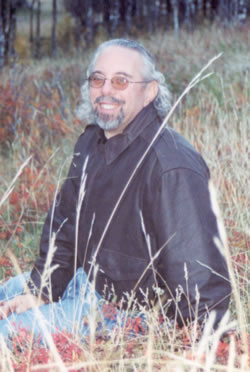Digital Poetry?
The concept of digital creation in terms of making art & music seems straight forward enough -- you use software to manipulate and/or create sounds or images in ways not possible before we had computers. But what is digital poetry and what electronic tools beyond digital distribution are available to muse maniacs and word artists? How can a poet make words do more than they would if they were spoken or typed normally.
Perhaps the most common entry point for shaping poetry with new digital tools is through combining it with media formats already being redefined by the new forms of digital expression. Spoken word sampling can add new dimensions to experimental electronic music & avante garde video. Word and phrase forms can also be a powerfully integrated into Dadaistic digital collages. But how and when will word driven artists finally be able to enjoy the ease of digital creation and power of electronic expression now available to visua l and sound artists?
Dada poets opted for effect over articulation, for creating an experience over making sense. Recording technology advances over the last 50 years have allowed many new poets to experiment with using audio processing to create new forms of experience from their traditionally created poems. The work of Charles Amirkhanian is a great example. This is well illustrated with Charles Amirkhanian's collaboration with Anthony Gnazzo to create William Panda with Back Mark to Martyre. In this piece, the 1960's vintage echo effects with dual voices were used to bombard the listener with percussive word repetition. In his beat-dada Three Permutations, Brion Gysin repeats a single phrase several times. Words are deranged in differmenting orders swith each realiterations creating either an overtly relaxed or a drastically agitated state in the listener. With popularity of mp3's we are just now starting to see many more poets publishing spoken word in digital audio formats. The web site, www.mp3poetry.com, boasts over 300 audio poems for free download. This, of course, is just the beginnings of the beginning. If new dada teaches us one lesson, it is that when it comes to experiential expression, nothing made is ever enough. The richer the experience, the more hedonistic the dream, the better. Why stop with just sound on sound? Give us something to touch, something to see, something to sink our subconscious fangs into.
There certainly have been attempts over the years to create word based multimedia experiences. The equipment and software is now affordable and available for home computers to do this and so much more; however, very few poets have created digital word experiences that have truly transcended what could be done with just the simple spoken voice. Web sites like www.flashpoetry.net that are dedicated to combining music, images, and poetry using flash that reveal certain exciting new possibilities for word driven experimentation, but as of yet I have seen very little there that pushes the boundaries of what could be done with the low tech old school multimedia slide shows, little that will revolutionize the way poets have created poetry for hundreds of years.
Other web sites like www.poemsthatgo.com definitely have paved the way for what is to come. Poems here range for interactive puzzles to moving letter patterns creating paradoxically a new kind of "fluid concrete" poetry. Others combine music, experimental video clips, images and spoken word with scrolling or flying text. As more poets begin creating works incorporating such rich media, the dream of digital dada everywhere will soon entrance the sleeping public. The boundaries between different forms of creative expression, between the visual, the cerebral and the audio is becoming ever more blurred as the new digitalogists begin exploring new ways to create provocative virtual experiences.
Labels: art, avante garde, beat, blog, creation, dada, digital, experimental, free, image, mp3, music, poetry, video

